CLEOPATRA: THE DEMISE OF GLORY
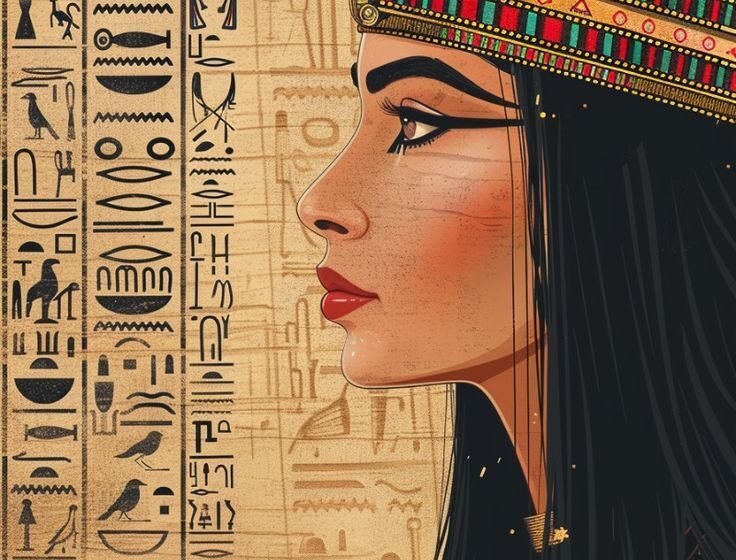
Carrying the name Cleopatra VII Thea Philopator, (Cleopatra father loving Goddess) She was the last active ruler of the Egyptian Ptolemaic empire from 51 to 30 BC. Queen Cleopatra is eternal and immortal, being a glorious figure often reappearing in paintings, sculptures, Roman and Ptolemaic coinage, Roman historiography, texts, carvings, Latin poetry, Renaissance art and baroque, Operas, and modern pop culture. But, why does this specific ruler hold so much significance? And how did her downfall unfold?
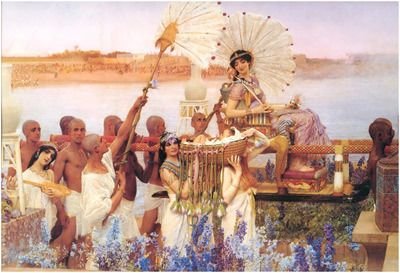
Queen Cleopatra VII of Egypt, born in 69 BCE, is one of history’s most renowned figures, celebrated for her intelligence, political acumen, and dramatic life. As the last active ruler of the Ptolemaic Kingdom of Egypt, she was the last Pharaoh before the country became a province of the Roman Empire. Cleopatra was born into the Ptolemaic dynasty, which had ruled Egypt since the time of Alexander the Great. Unlike many of her predecessors, she was highly educated, fluent in multiple languages, and familiar with the cultures of both Greece and Egypt. This ability to navigate diverse cultures played a crucial role in her reign, as she sought to strengthen Egypt’s position in a world dominated by Rome.
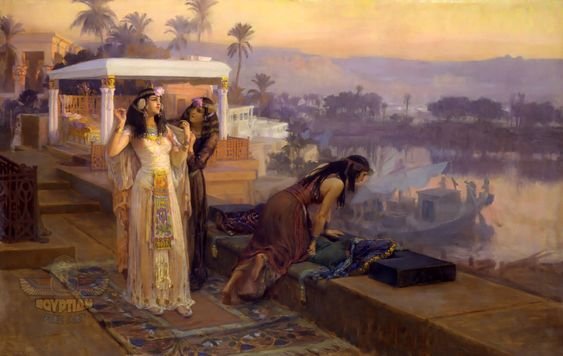
Ascending to the throne at the age of 18, Cleopatra initially co-ruled with her younger brother, Ptolemy XIII, whom she later ousted with the help of Julius Caesar. Their alliance was both political and personal, as Cleopatra sought to secure her throne and restore Egypt’s power. The affair between Cleopatra and Caesar produced a son, Ptolemy Caesar, commonly known as Caesarion. Cleopatra’s relationship with Caesar elevated her status, drawing the attention of Rome and making her a pivotal player in the political landscape of the time. Following Caesar’s assassination in 44 BCE, Cleopatra returned to Egypt but continued to seek alliances to protect her kingdom. Her relationship with Mark Antony, a leading figure in the Roman civil wars, was equally significant. Their union produced three children and was marked by political collaboration as they sought to consolidate power against their mutual rival, Octavian, the future Emperor Augustus. Cleopatra’s reign was characterized by her efforts to restore Egypt’s former glory, which had diminished under Roman influence. She implemented various economic reforms, revitalizing trade and encouraging agriculture, especially along the Nile.
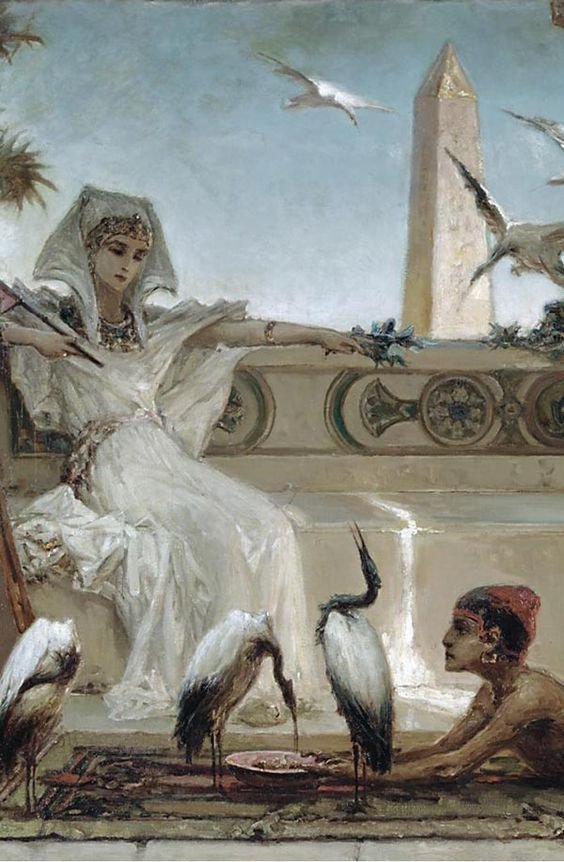
Her court became a center of culture and learning, attracting scholars, artists, and philosophers. Cleopatra’s intelligence and charisma allowed her to maintain her independence in a male-dominated political environment, using diplomacy and, when necessary, seduction. However, the power dynamics in Rome were shifting. The conflict between Antony and Octavian escalated, culminating in the naval Battle of Actium in 31 BCE. Cleopatra and Antony’s defeat marked the beginning of the end for their reign. Following the loss, they returned to Egypt, where their situation grew increasingly dire. In 30 BCE, as Octavian’s forces closed in, Cleopatra took her own life, traditionally believed to be by snake bite, though the exact details remain a subject of speculation. Her death marked the end of the Ptolemaic rule and the transformation of Egypt into a Roman province.
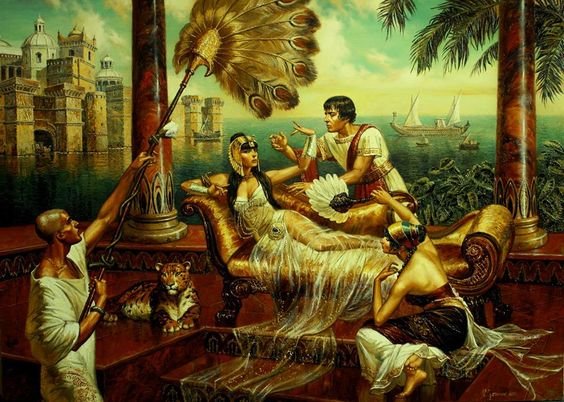
Cleopatra’s legacy endures through various cultural representations, from literature to film, often emphasising her allure and intelligence. While she is frequently portrayed as a seductress, historians emphasise her role as a capable and shrewd ruler who navigated complex political landscapes. Her life story continues to captivate and inspire discussions on power, gender, and the interplay of politics and personal relationships in history. Cleopatra remains a symbol of the enduring strength and complexity of female leadership in a time when such influence was rare.
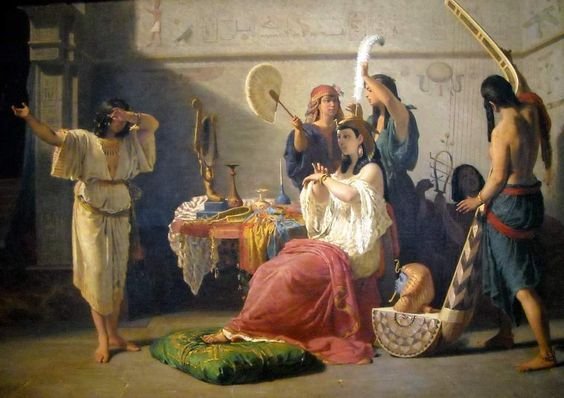
She was born during the reign of her father Ptolemaic pharaoh Ptolemy XII and an unknown mother (presumed to be Cleopatra V Tryphaena) and tutored by Philostratos, from whom she learned the Greek arts of oration and philosophy, Queen Cleopatra was one of the most powerful rulers of ancient Egypt. Being the descendant of Ptolemy I Soter, a Macedonian Greek General and a companion of Alexander the Great, She defended her kingdom against many attempts of invasion from the Roman Empire. Marking the end of the last Hellenistic period state in the Mediterranean, Egypt became a province of the Roman Empire after Queen Cleopatra’s death. She was the first and only ruler of the Ptolemy dynasty who learnt the Egyptian language despite her mother tongue being koine Greek. Involved with Julius Caesar, She gave birth to a son, Caesarion with whom she then proceeded to co-rule her kingdom with. Further, involved with Mark Anthony, She had two sons and a daughter.
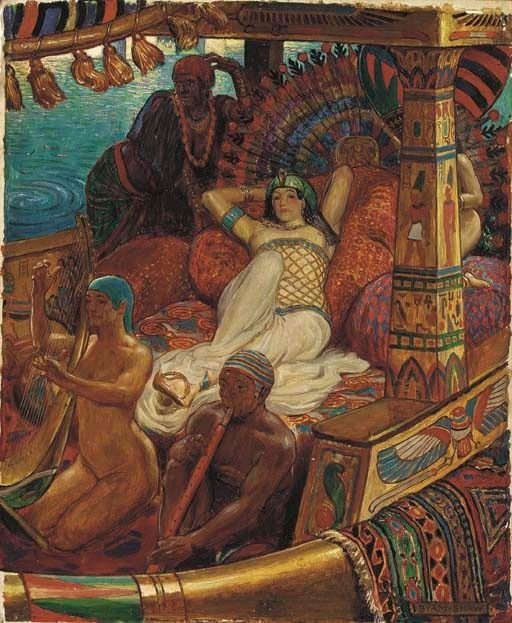
The most fascinating thing about the tale of this Egyptian Royal is her death. Although suicides were quite common in this era, Cleopatra’s suicide is not clearly deciphered up till now. She is believed to have allowed an asp, popularly known as an Egyptian cobra to bite her, however, no signs of any poisonous snake were found near her body. It is also believed that she let the poison enter her body with the help of a needle, as punctures in her arm were seen to resemble that of a needle. What is also interesting is that the reason for the death of Cleopatra and her son, Caesarion, the rightful heir of Julius Caesar, was the attack on Alexandria by the claimed heir of Julius Caesar, Octavian, later to be known as Augustus Caesar.
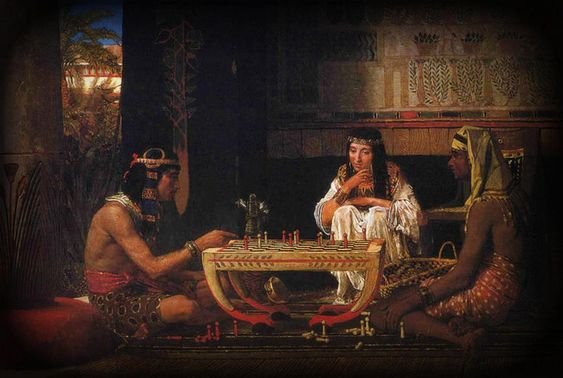
Although the demise of this royal was a result of disputes of territorial boundaries and heir disputes, She will always be remembered as one of the bravest female rulers of the world. Cleopatra is a symbol of femininity, courage, power, and valour bound together. She proves to be the epitome of femme power in a patriarchal world order. She is a source of inspiration for young minds which makes her and her glory immortal even after all the years of her death. Enthusiasts of Egyptian culture and history acknowledge how Queen Cleopatra is a very strong figure, being the epitome of feminine power and glory of the nation, she holds significant importance in the country’s history.


